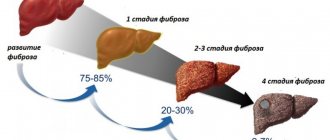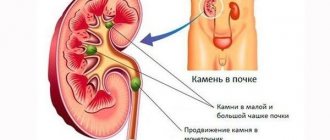Disease or normal
The desire to sleep after lunch is quite normal.
After a meal, blood flow to the brain increases significantly. Due to this, it stops working properly. So daytime sleepiness does not always indicate the presence of health problems. You may also feel drowsy while traveling in a car. It is caused by motion sickness, which is familiar to everyone from early childhood.
If such symptoms do not go away all day, then they often indicate the development of diseases of various organs and systems.
Why do I always want to sleep, what could it be?
In most cases, the reason that a person feels sleepy is an incorrect lifestyle, a poorly designed daily routine. This problem is especially common among young people who go to bed late or may even stay up all night. And sometimes daytime sleepiness is caused by nighttime insomnia.
However, there is also a situation when a person seems to sleep well at night, but in the morning he still feels sleepy, tired and overwhelmed. This condition is usually evidence of depression, physical or mental fatigue. Often the cause of a sleepy state is unfavorable climatic conditions, too high an air temperature, lack of oxygen (if a person works or lives in an unventilated room).
Drowsiness due to lifestyle
Since their student years, many have become accustomed to the fact that an extra hour of cramming will not affect anything except the grade. Then this habit goes with you to work. Sometimes deadlines are more important than getting enough sleep, but they are definitely not as important as health and well-being.
In fact, such chaotic theft of sleep time from the body is the key reason for constant sleepiness and decreased productivity. This also applies to those who like to walk until the morning and get enough sleep during the day. There is no need to be a hero, this is nothing more than self-deception.
Drowsiness may occur if your job requires you to work hard physically, and therefore you are too tired to simply fall asleep. The same thing happens if you have a stressful job and you are under high emotional stress all day. In this case, daytime sleepiness is your defense mechanism against irritants from the outside world.
Know that:
- Depriving ourselves of sleep for at least one hour affects our condition for another four days.
- Chronic lack of sleep leads to weight gain - the body becomes less full of the satiety hormone leptin, and more of the appetite hormone ghrelin.
- If you get little or poor sleep, you are more likely to develop dementia or heart disease and have a weakened immune system and fertility.
- Lack of sleep is perceived by the brain as anxiety. A person risks falling into a vicious circle: waking up in the middle of the night, thinking about bad things, feeling tired and even more anxious the next day, and not sleeping again.
Causes
There are physiological and pathological reasons for the constant desire to sleep. Such changes occur under the influence of various factors, and when eliminated, the condition normalizes. Sometimes such changes are observed due to malfunctions of internal organs. Causes of daytime sleepiness may include pregnancy, changes in weather conditions, taking medications and a number of diseases.
Natural factors
Daytime sleepiness is often caused by weather changes. Heavy rain helps lower blood pressure. At the same time, the person really wants to sleep. In addition, there is a feeling of weakness. As soon as the weather improves, the condition returns to normal.
Some people react this way to extreme heat. It is also possible for such symptoms to develop during periods when the length of daylight hours begins to rapidly decrease. At the same time, the body begins to synthesize the sleep hormone much earlier than expected.
Chronic lack of sleep is the most common cause of daytime sleepiness. Even if a person is sure that he has enough sleep at night, in fact this may not be the case. Sleep can be incomplete, its phases may be confused. In addition, frequent awakenings due to stuffiness and noise are possible.
Lack of sleep leads to a whole range of unpleasant symptoms. The eyes hurt, there is excessive irritability, deterioration in general condition and decreased performance.
Overwork
Severe fatigue, weakness and drowsiness during the day appear in case of overwork. Traveling, working, shopping and everyday problems lead to the fact that a person simply has no energy. The brain needs rest, but it is forced to continue working for days. The solution to the problem is to take a break from work. To restore the activity of the nervous system, you should take at least a short vacation.
Stress and depression
In situations where it is necessary to solve serious problems, a person initially has enough energy, but in the absence of the desired result, apathy sets in. There is no longer any strength to fight further. There is constant fatigue and weakness. Daytime sleepiness is the body's protective reaction to stress.
Depression can also lead to similar symptoms. With severe mental damage, interest in everything that happens around is lost.
Among the causes of constant, severe drowsiness are the use of medications used in the treatment of mental and neurological disorders. Among these drugs:
- neuroleptics;
- antidepressants;
- tranquilizers.
In addition, people get tired more quickly when taking first-generation antihistamines and hypertension medications.
The feeling when the whole body hurts and you want to sleep with an acute respiratory infection is familiar not only to adults, but also to children. Such changes are due to the fact that the body is trying to use all its strength to fight the infection. Daytime sleepiness is also observed in the absence of pronounced symptoms of pathology. In this case, the presence of a hidden inflammatory process occurring in one of the organs provokes a similar condition.
A considerable number of hormones can affect nervous and physiological processes. If their concentration is insufficient, then the person constantly wants to sleep during the day, there is a loss of strength, weakness and fatigue. It is also possible that the immune system is suppressed, a decrease in blood pressure, lack of appetite and a sharp decrease in body weight. Hormones synthesized by the thyroid gland and adrenal glands can provoke such changes.
There are a number of pathologies in which the brain experiences a lack of oxygen, and as a result, malaise and daytime sleepiness occur. Among these diseases:
- asthma;
- pneumonia;
- bronchitis;
- increased blood pressure;
- atherosclerosis;
- ischemia;
- arrhythmia;
- heart attack
If you want to sleep and weakness appears throughout the body, then such symptoms often indicate pathologies of the kidneys or liver. They can occur in acute and chronic forms. At the same time, toxic substances enter the body, causing the appearance of such symptoms.
Severe poisoning occurs under the influence of medications and a number of harmful substances.
Atherosclerosis
Often, sleepiness during the day warns of a serious illness - atherosclerosis. It is generally accepted that only older people are susceptible to it, but cases of the development of this pathology have become more frequent in young people. In this case, the brain vessels become clogged with lipids, which are deposited on the walls. Blood circulation is impaired, a feeling of noise in the head appears and memory deteriorates.
Osteochondrosis
The development of this disease is most often observed in people engaged in sedentary work. Among the symptoms of the disease, it is not only that a person constantly wants to sleep. The following changes are also observed:
- lethargy;
- neck pain;
- difficulty concentrating;
- increased fatigue;
- spasms of the cervical arteries.
Pregnancy
It is not surprising that a woman always wants to sleep during pregnancy. The point here is not at all that the expectant mother gets tired faster. From the moment of successful fertilization, the need for rest increases significantly as a result of hormonal changes. As a rule, daytime sleepiness is observed in the first trimester, and after that the body functions normally. In later stages, such symptoms indicate anemia or eclampsia.
Conditions in which there is a deficiency of blood in the circulatory system and hemoglobin often lead to impaired blood circulation in the brain. With anemia, constant weakness and fatigue are often observed. The eyes become “heavy” and I want to sleep. In addition, pale skin and dizziness are noted. If dehydration occurs or the body lacks nutrients, similar symptoms also appear.
Bad habits
People constantly feel sleepy when they drink too much alcohol. This effect is due to the negative impact on the nervous system and vital organs. Loss of strength is not excluded due to smoking, in which the blood supply to brain tissue deteriorates. Narcotic substances have a sedative effect.
There are neurological and mental causes of drowsiness. As a rule, such conditions are accompanied by apathy, fatigue, increased fatigue and a number of other symptoms. The following health problems can provoke such changes:
- vegetative crises and seizures;
- apathetic stupor;
- psychosis, regardless of its type;
- epilepsy;
- schizophrenia.
It is not always easy to answer the question of why a person wants to sleep. The main factors that cause drowsiness can be divided into those that are caused by a person’s unhealthy lifestyle or external causes, and those that are associated with pathological processes in the human body. In many cases of drowsiness, there are several causes at once.
Natural factors
People react differently to natural phenomena. For some they have no noticeable effect, while others are very sensitive to weather changes. If it rains outside for several days in a row and there is low pressure, then the body of such people reacts to these circumstances by lowering blood pressure and vitality.
Also, some people are susceptible to a syndrome in which a decrease in daylight hours causes the body to release hormones necessary for sleep much earlier than planned. Another reason explaining why a person constantly sleeps in winter is that in winter our body has access to fewer vitamins obtained from fresh vegetables and fruits, the consumption of which is known to improve metabolism.
If a person sleeps for days. If you sleep too much: 7 health risks
Sleeping little, as well as sleeping too much, is harmful to health. Try not to abuse sleep, setting aside 7-8 hours a day for rest. Otherwise there will be problems.
Depression
The development of depression is largely due to genetic factors. However, hereditary factors alone are not enough to cause the disease. Scientists have recently found that people who sleep more than 10 hours a night are more susceptible to depression than others. According to scientists, the likelihood of developing depression with a hereditary predisposition increases by 49% if after 10 hours a day.
Diabetes
Both lack and excess of sleep equally negatively affect the body's tolerance to glucose. It has been established that if you sleep more than 8-9 hours a day, the likelihood of developing diabetes can increase by 1.5-2 times!
Excess weight
As you know, weight gain threatens those who do not get enough sleep, but, as studies show, excessive sleep is also fraught with the appearance of extra pounds. However, if you lead an active lifestyle, then most likely you will not gain excess weight from excess sleep. Studies show that in 3-5 years of regular excessive sleep you can gain 5-8 kg, provided that the person does not exercise.
You may be interested in: How much sleep do you need to lose weight faster?
Heart problems
Chest pain associated with heart problems most often occurs in those who sleep a lot. Angina-type pain increases if you sleep too much.
Memory loss and deterioration of brain function
A 15-year large-scale study shows that long sleepers have problems with memory and brain function. In particular, there is an acceleration of brain aging and the development of neurodegenerative diseases associated with age-related changes in the body.
Other studies show that men and women aged 60-70 have more cognitive impairment if they sleep more than 9 hours. Scientists note that the habit of sleeping a lot in people over 60 can become one of the negative factors in the development of various dementias.
Headache
Do you like to sleep a lot? Then get ready for headaches. Whether you're 20 or 80, too much sleep can cause severe headaches, dizziness and migraines.
Until now, the reason for this phenomenon is unknown. According to one theory, excessive sleep leads to disruption of the transmission of nerve impulses, which causes headaches.
Premature death
An analysis of 16 large-scale studies involving about 1.5 million people showed that people who sleep more than 9-10 hours a day live shorter lives than others. In such cases, there is an increased likelihood of death due to one reason or another.
What diseases cause constant drowsiness?
Constant daytime sleepiness is a symptom that requires close attention. To determine its cause, other manifestations are also important. For example, in one case a person wants to sleep and eat, but in another he has no appetite. Often, if a person feels sleepy, this is a consequence of the diseases that have affected him.
What disease can cause a condition where you want to sleep? There are a lot of such diseases:
- chronic infections,
- anemia,
- atherosclerosis of cerebral vessels,
- narcolepsy,
- chronic intoxication,
- diabetes,
- hypotension,
- low levels of adrenal hormones,
- thyroid insufficiency.
If you experience signs of unexplained daytime sleepiness, you should consult your doctor. He will collect all the data from tests and studies, and only after that will he be able to make an accurate diagnosis.
Everyone probably knows the feeling when, during a period of flu or acute respiratory infection, you feel sleepy, tired and overwhelmed. This is nothing more than a protective reaction of the body, which forces a person to reduce activity. After all, all strength is required in the fight against the disease. However, an infectious disease may not always be accompanied by obvious symptoms.
Anemia
Anemia is usually caused by a lack of hemoglobin in the blood, which causes tissue hypoxia and, first of all, the brain. Other symptoms of anemia, in addition to sleepiness, are weakness and pallor. Anemia is often caused by large blood losses. Sometimes bleeding can be hidden, for example, with gastritis, ulcers, tumors, and the patient may know nothing about it.
Atherosclerosis
This is the name of a disease in which the blood vessels become clogged with atherosclerotic plaques resulting from the predominance of “bad” cholesterol in the body. This often affects the blood vessels of the brain. With cerebral atherosclerosis, a person may feel sleepy, experience headaches, dizziness, tinnitus, and decreased memory and cognitive abilities. Nowadays, atherosclerosis is no longer a disease exclusively of older people; it can also occur in middle age.
Narcolepsy
Narcolepsy is a rare and little-studied disease that leads to a sleepy state. It is caused by a lack of certain neuropeptides in the brain that regulate sleep. The disease is hereditary and is more often observed in young men. The provoking factor is usually viral infections.
Intoxication
Often a person may feel sleepy as a result of taking narcotic drugs or abusing sedatives. However, drowsiness can often occur as a side effect of drugs that, it would seem, should not affect the brain. For example, this applies to many antiallergic drugs and antihypertensive drugs.
Hypotension
The mechanism for the development of drowsiness in this case is simple - blood does not flow in the required volume into the vessels of the brain, and protective mechanisms are activated. However, low blood pressure in itself is not a disease. This is a symptom that can accompany various diseases - vegetative-vascular dystonia, heart failure, heart defects, hypothyroidism.
Many hormones produced by the body are designed to regulate its physical and mental activity. These include adrenal and thyroid hormones. A lack of these hormones can cause loss of energy, lethargy and drowsiness. Drowsiness is often caused by disturbances in blood sugar levels, which are regulated by the hormone insulin. Too much or too little sugar can lead to ketone toxicity, which in turn affects the brain.
Often, a symptom such as drowsiness appears in women during menopause - due to a decrease in the level of female hormones.
This is the name of a disease whose main symptom is daytime sleepiness. Other manifestations of the disease include irritability, headaches, decreased memory and concentration, and frequent allergic reactions. The causes of the disease are unknown, but most likely they are associated with a previous acute viral infection caused by the herpes virus, as well as exposure to the Epstein-Barr virus. Other contributing factors are increased stress levels and nervous fatigue. Most often, women aged 25-45 years are affected by the syndrome.
Traditional medicine and anti-drowsiness pills: what to choose?
In modern society, there are still 2 methods of combating illnesses: folk advice and medical indications. Neither type of treatment loses its popularity and has an equal number of fans. To find out how best to overcome drowsiness, you need to contact both a healer and a physician.
Folk remedies for drowsiness
Most often, healers’ recipes are passed on in the following way: “my neighbor did this…” Without the risk of being trapped or in a harmful state, it is better to consider the most reliable methods that are understandable to the common person, without the use of snake skin or toad legs.
Recipe 1. Do not use soap. As you know, soap contains a significant percentage of alkali, which at the time of washing penetrates through the pores of the body and causes fatigue. It is better to swim in clean water or use shower gels that do not contain alkali.
Recipe 2. Oat infusion for excessive drowsiness. Pour the washed oat grains into a liter of water and cook over low heat until thick (like jelly). Strain the infusion, add the same amount of milk and 5 tbsp. honey Drink 50 grams of the invigorating mixture 4 times a day. The course of combating increased sleepiness is 2-3 months.
Recipe 3. Datura leaves, contrary to their intoxicating name, make a person falling asleep while walking think clearly and drive away sleep. The principle is simple: brew 20 grams of dope leaves in 250 ml. hot water and leave the mixture for 30 minutes. It is recommended to drink the “anti-sleeping potion” one third of a glass a day.
Anti-drowsiness pills
Pharmaceutical companies have studied the problem of drowsiness in detail and decided to release a whole line of drugs against sleeping at inappropriate times.
Amino acids are an excellent fighter against fatigue, lethargy and drowsiness. These include glutamic acid, glycine and other acids. Depending on your body weight, it is recommended to take 1-2 tablets a day, which allows you to feel like Superman throughout the day.
Modafinil is a new substance that can regulate sleep and wakefulness without harming health. The content of this drug in medications and tablets enhances the production of dopamine and gamma-aminobutyric acid in the nervous system. More often, drugs are used for chronic somatic disorders caused by increased levels of drowsiness.
What to choose?
In the course of an equivalent choice between medicine and folk remedies, one cannot draw independent conclusions. In any case, even the simplest prescription, you need to consult a doctor for recommendations. Perhaps the body will react ambiguously to the medications, because jokes with the nervous system are bad.
Considering modern ecology and products, it is better to choose a safer place to live and less dangerous products. Vigilance and attentiveness in all life issues will help regulate normal sleep and wakefulness.
Video: How to overcome drowsiness
Drowsiness in a child
Babies sleep a lot in the first few months of life. The older the baby gets, the less time he needs to rest. The most common cause of drowsiness, when the baby literally closes his eyes while walking, is overtiredness. Also, similar changes are observed during the development of infectious diseases.
If you systematically want to sleep during the day, you may suspect serious health problems:
- heart disease;
- leukemia;
- hepatitis;
- diabetes;
- metabolic disease;
- tuberculosis.
It is strongly recommended not to ignore such symptoms. It is extremely important to undergo a comprehensive examination in a timely manner and identify the cause of such changes.
What to do if you constantly want to sleep and how to treat it at home
If a person feels sleepy, then it is of little benefit to him. He is haunted by troubles, both at home and at work, everything falls out of his hands, his performance decreases, and problems appear in his personal life. It happens that sometimes a person is completely cut off. This can be dangerous if a person is on the street, at a responsible job that requires concentration, or while driving.
How to get rid of a sleepy state? It is best not to self-medicate. You need to go to the doctor, take all the tests, and try, with the help of a doctor, to find out the cause of the syndrome. Indeed, behind such a seemingly harmless symptom as drowsiness, there are often life-threatening diseases. And self-treatment is dangerous. For example, energy drinks such as coffee, which many people use to invigorate themselves, are strictly contraindicated for many diseases.
If drowsiness is caused by nervous stress or depression, then you should get rid of these conditions. Perhaps you need to change something in your life, change jobs, take a vacation. Sports activities, water treatments, and listening to energetic music are good ways to tone up.
However, in this situation, it would not hurt to consult a neurologist or psychotherapist. For some diseases of the nervous system, the doctor prescribes drugs from the group of antidepressants. Extracts of ginseng and eleutherococcus also have tonic properties.
If the cause of the sleepy state is a somatic disease, then it is necessary to follow the instructions of the doctor, who will develop a treatment strategy. For anemia, it is necessary to take iron-containing drugs, for infections - antibiotics and antiviral agents.
Why do I always want to sleep, what could it be?
You can combat daytime sleepiness by following a number of recommendations:
- Stick to the normal routine. Go to bed at the same time every day.
- Do exercises in the morning. It is not at all necessary to resort to excessive physical activity. A set of exercises that take only a quarter of an hour will help you cheer up.
- Immediately after waking up, open the curtains.
- Lead a healthy lifestyle. Give up bad habits and walk in the fresh air more often.
- Take vitamin complexes that improve your general condition and help eliminate unpleasant symptoms.
- Drink enough fluids throughout the day.
- To quickly cheer up, it is recommended to turn on dance music.
- Ventilate the room more often. Lack of oxygen has a negative impact on well-being.
If you suspect the development of any diseases, you should immediately consult a doctor in order to select the optimal treatment tactics. If the condition arose for physiological reasons, then therapy, as a rule, is not carried out. It is enough just to eliminate the provoking factor.
First of all, it is worth noting that constant sleepiness negatively affects a person’s entire life. He sleeps on the move, cannot fully perform his work duties, do household chores, and because of this constantly comes into conflict with others. This in turn leads to stress and neuroses. In addition, drowsiness can directly pose a danger to the person and others, for example, if he is driving a car.
A person constantly sleeps sickness. Causes of physiological drowsiness
If a person does not sleep for a long time, then his body signals him about the need for sleep. Throughout the day, he may repeatedly fall into a state of physiological drowsiness. This condition can be caused by:
- overstrain of pain or tactile receptors;
- functioning of the digestive organs after eating;
- auditory stimuli;
- overload of the visual system.
Lack of sleep
Normally, a person should sleep about 7-8 hours a day. With age, these indicators may change. And with forced sleep deprivation, a person will experience periods of drowsiness.
Pregnancy
Drowsiness during pregnancy is a normal state of the female body.
The period of bearing a child requires significant restructuring from the woman’s body, starting from the first months of pregnancy. In its first trimester, inhibition of the cerebral cortex by hormones leads to daytime drowsiness, and this is a variant of the norm.
Drowsiness after eating
Normally, for proper digestion of food, the body must remain at rest for some time, during which blood must flow to the organs of the gastrointestinal tract. Because of this, after eating, the cerebral cortex experiences a lack of oxygen and switches to an economy mode, accompanied by physiological drowsiness.
Stress
Any stressful situation causes the release of cortisol and adrenaline into the blood. These hormones are produced by the adrenal glands, and constant nervous overstrain causes their exhaustion. Because of this, the level of hormones decreases, and the person experiences a loss of energy and drowsiness.
What not to do if you notice excessive sleepiness
The normal amount of sleep for an adult is 7-9 hours every day. A person's need for sleep changes as they age. Babies sleep constantly - 12-18 hours a day, and this is the norm. Gradually, sleep duration decreases until it reaches adult levels. On the other hand, older people also often have an increased need for sleep.
It is also important that a person belongs to the type of representatives of the animal kingdom for whom night sleep and daytime wakefulness are normal. If a person cannot spend the time necessary for proper rest every night in sleep, then such a syndrome is called insomnia or insomnia. This situation leads to many unpleasant consequences for the body.
This syndrome can be called differently: hypersomnia, somnolence, or, more commonly, drowsiness. It has many reasons, and finding the right one in each specific case is very difficult.
First, let's define the concept of drowsiness more precisely. This is the name of the condition when a person is overcome by yawning, heaviness presses on the eyes, his blood pressure and heart rate decrease, consciousness becomes less acute, and actions become less confident. The secretion of the salivary and lacrimal glands also decreases. At the same time, a person becomes terribly sleepy, he has a desire to sleep right here and now.
Self-administration of medications is not advisable, as is the constant use of stimulants, such as coffee or energy drinks. Yes, a cup of coffee can cheer up a person if he did not sleep well and requires increased attention and performance. However, constant stimulation of the nervous system with the help of caffeine or other energy drinks does not solve the problem, but only eliminates the external symptoms of hypersomnia and forms the mental dependence on stimulants.
Fatigue and fever
If a man constantly wants to sleep, and at the same time an elevated temperature is observed, then this is a signal from the body, indicating the presence of bacteria or viruses. However, if such a phenomenon occurs once (most often in the evening), then its cause may be overwork. In any case, there is no need to panic at elevated temperatures, but it is better to take action - rest or sleep.
Nausea, drowsiness and headache as a symptom of central nervous system intoxication
If, in addition to elevated temperature, drowsiness is also added to: nausea, dizziness and headaches, then this can already be perceived as a serious signal from the body, indicating intoxication of the central nervous system. Often this condition occurs in humans due to poisoning with chemicals (medicines, food additives, etc.)
Important! If you do not begin urgent treatment for central nervous system intoxication, this will lead to serious consequences, such as: toxic coma, temporary stupor, or even brain death. Doctors will help you cope with such complications after diagnosis.











